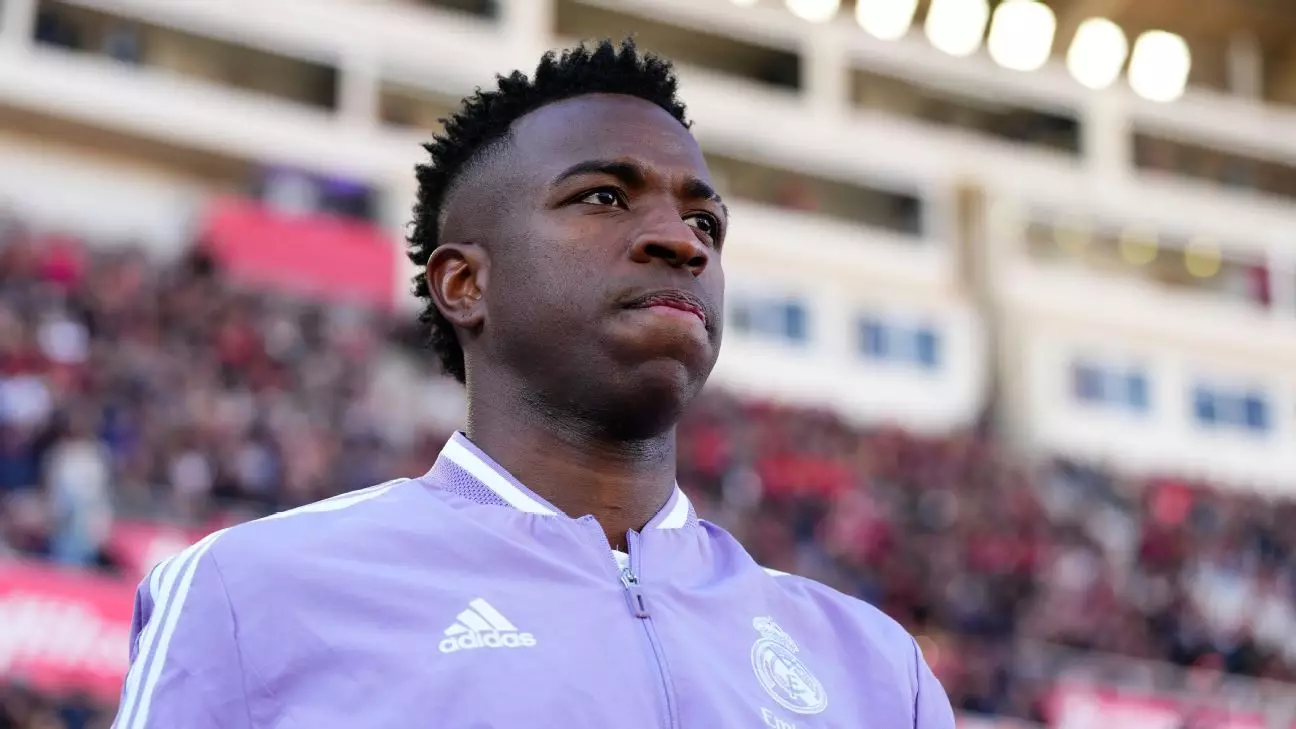Racism has haunted the realm of sports for years, posing challenges that extend beyond just games and matches. The recent attacks against Real Madrid’s Vinícius Júnior are a stark reminder of the traumas athletes of color endure worldwide. As one of the most notable figures in LaLiga, Vinícius represents not just his club but also the ongoing fight against racism in sports. The situation escalated dramatically ahead of a critical derby against Atlético Madrid, with an alarming campaign surfaced on social media suggesting that fans plan to attend the game with masks, aimed at perpetrating racially charged abuse without facing immediate repercussions.
In response to this despicable situation, LaLiga has taken an assertive stand, calling for the identification and arrest of those responsible for instigating this hate campaign. The league has made it clear that such actions are intolerable, labeling the behavior as incitement to hatred, a legal nuance defined explicitly in Spanish law. With heightened attention on these matters, LaLiga’s announcement demonstrates a commitment to not only stamping out racism but also addressing it within the legal framework. This is essential, as systemic racism continues to be a pervasive issue, often ignored or downplayed within the sporting sphere.
Moreover, LaLiga’s reaction brings to light the crucial role that sports organizations play in combating racism. By publicly taking a stand against hate, they not only protect their players but also influence fans and the larger community. The league’s efforts should foster a more inclusive environment, teaching fans the importance of respect and solidarity. In this context, the responsibility lies with all stakeholders—clubs, players, and supporters alike—to create a safer environment where any form of racism is condemned unequivocally.
The justice system’s involvement becomes a pivotal point in this narrative. Real Madrid coach Carlo Ancelotti emphasized that although his focus remains on sportsmanship, the gravity of the situation must not be overlooked. He indicated the need for the justice system to act, which can ensure that offenders face accountability. This is especially poignant given that just months ago, three Valencia supporters were imprisoned after racially abusing Vinícius. Such precedents are essential in establishing a deterrent effect which is vital for protecting players from future harassment.
While LaLiga’s decisive response to this issue is commendable, it opens the door for a broader conversation about how to effectively tackle racism in sports. Beyond punitive measures, there is a need for educational initiatives and community engagement to foster understanding and compassion. It is imperative that instances of racism are dealt with strictly and that support is extended not only to affected players but also to minority communities within football.
As discussions surrounding racism in sports continue, the focus must remain on unity, progress, and accountability. Only through collective action can the stigma of racism be diminished, creating a future where all athletes can perform without fear of discrimination or abuse.

